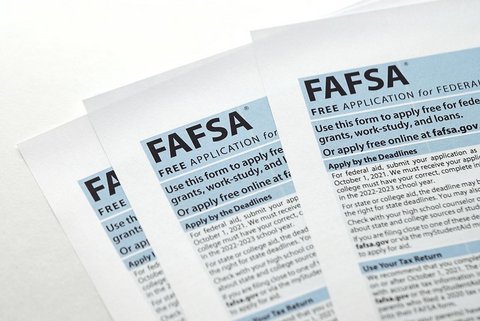
03 Mar EdSource: National Survey of Freshman Class of 2024 Finds Disparities Across Race, Sexual Orientation

(Photo by Javier Trueba on Unsplash)
By Amy DiPierro
EdSource
A recent national survey finds that how the freshmen class of 2024 navigated their first year of college — from the number of college applications they filed to their financial worries and mental health — differed across factors like race and sexual orientation.
The American Council on Education, a Washington, D.C., nonprofit whose members include more than 1,600 colleges and universities, released a report on Feb. 25 summarizing their CIRP Freshman Survey as part of a collaboration with the Higher Education Research Institute at the University of California, Los Angeles.
Racial disparities emerged as early as the college application process, the survey of 24,000 students attending 55 colleges found.
Researchers report that almost 70% of Asian or Pacific Islander students applied to seven or more students, the most of any group, compared to just 45% of white students. Nearly 79% of white students but only 44% of Asian or Pacific Islander students said they were admitted to their first-choice institution.
Once enrolled, concerns about paying for college were not felt evenly among incoming freshmen. Roughly 81% of Hispanic or Latino students and about 70% of Black or African American students reported some or major concern about paying for college, compared to about 47% of white students.
>>From the Pulse Archives:
Student Debt Fuels Racial Wealth Gap, Advocates Say<<<
Researchers also tracked how experiences of college varied by sexual orientation and gender. In 2015, when the CIRP Freshman Survey first asked about sexual orientation, about 93% of students who chose to answer the new question identified as straight.
This fall, 82% of incoming freshmen self-identified as heterosexual, propelled by a growing number of students who reported that they were gay, lesbian, bisexual or had another orientation.
Researchers found that students who were not straight or who identified as transgender, regardless of their sexual orientation, were more likely to see a state’s politics and legislation as somewhat or very important to their decision about where to attend college. In addition, 56% of students who identified outside the male-female gender binary considered state politics and legislation somewhat or very important to their college choice, compared to just 33% of men and 39% of women.
The report also describes significant disparities in first-year students’ mental well-being across gender. Students who identified as nonbinary, genderqueer, gender nonconforming or a gender identity that was not listed reported higher rates of anxiety, depression and overwhelm in the past year compared to men and women. For example, 42% of men said they frequently or occasionally felt depressed, compared to 59% of women and 91% of students who identified outside the male-female binary.






No Comments